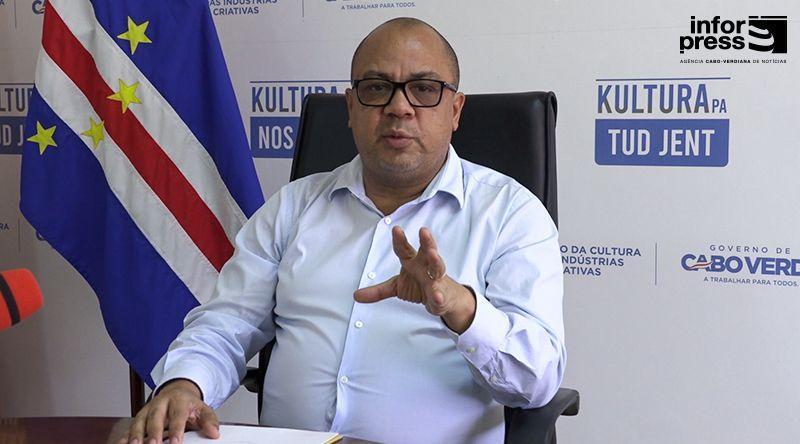Africa-Press – Cape verde. The Minister of Culture, Augusto Veiga, stated that the Government has reinforced its support for batuque (a traditional Afro-Brazilian musical genre) and advocated for the formalization of groups to expand access to funding and ensure the continuity of this traditional expression.
Augusto Veiga considered that the Government has taken concrete steps to value and promote batuque in Cape Verde, ranging from unprecedented financial support to actions of promotion, training, and historical preservation.
As he stated to Inforpress, “batuque is a musical style that is unique to Cape Verde” and should be given the prominence it deserves, both in the country and in the diaspora.
The minister recalled that, for the first time, the Ministry of Culture and Creative Industries launched a call for proposals exclusively dedicated to batuque, worth “three thousand contos” (approximately €3,000), allowing the participation of up to 30 groups.
Each group could compete with projects valued at up to 100 contos to produce music videos, record songs, acquire uniforms, or traditional instruments such as the “txabeta” (a type of drum). “It was the first step in a process of appreciation, giving the groups the conditions to promote their work,” he stated.
Another milestone mentioned was the return of the “Grande Roda de Batuque” (Great Batuque Circle), held in partnership with the Santa Cruz City Council, which brought together more than 300 batuque dancers in a single day, in homage to the centenary of Nha Inácia Gomes, a historical figure of the tradition.
“It was a very positive day for batuque, with great visibility for the Cape Verdean musical style,” the minister pointed out.
Veiga added that the Government has financed several festivals on various islands, especially within the scope of the National Batuque Day (July 31st), and that it supports groups both through public notices and through direct funding, including national and international trips to broaden the dissemination of the tradition.
According to the minister, batuque, despite having African roots, has become a style “unique to Cape Verde and unique in the world,” which is why the government intends to continue working with producers and groups, but demands greater organization.
“What we ask is that the groups formalize themselves; many are informal, and this prevents access to public funding. Formalization means having more cultural strength and the capacity to claim more resources,” he explained.
Augusto Veiga also reinforced that batuque practiced in the diaspora is of great importance in preserving and promoting Cape Verdean culture abroad, which is why cultural associations outside the country are also supported.
The minister observed that batuque, traditionally linked to women, is now attracting more and more men and children, something he considers essential to guarantee the future of the style.
“Seeing groups of children performing, as on National Culture Day, shows that the tradition is alive and has a guaranteed future,” he said.
The minister also highlighted the work developed over three years in partnership with the Institute of Cultural Heritage (IPC), which resulted in the preservation and reintroduction of the Cimboa, a traditional instrument historically linked to batuque.
According to Augusto Veiga, the musician Gil Moreira is today one of the clearest examples of how the Cimboa can return to the batuque stages, demonstrating in practice the viability of its integration.
With the instrument now preserved, the Ministry wants to encourage more and more batuque groups to adopt it, promoting training and creating conditions for new players to emerge.
The integration of the Cimboa, Veiga stressed, represents “an added value for our culture,” as it prevents the instrument from disappearing and adds new “values to batuque,” recovering elements of its identity from more than 50 years ago.
For More News And Analysis About Cape verde Follow Africa-Press






